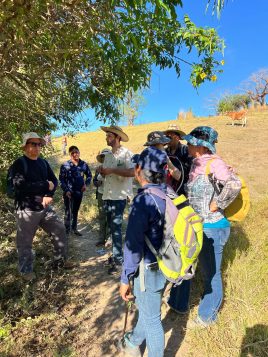
Located in the central Guatemalan Highlands, Rabinal is a predominantly rural municipality of approximately 35,000 residents, 80% of whom are members of the Maya-Achí indigenous group. The Rabinal municipality includes three main watersheds, Chichupac, Xesiguán, and Concul, that supply the urban area of the municipality with drinking water. While they provide enough drinking water in winter, the effects of climate change have impacted the supply of water for household and agricultural use during the summer. In Rabinal, the summer rains have always allowed for the abundant cultivation of maize – the staple crop of the Maya and the basis for their rich 5000-year history. But in the last decade dry conditions during the rainy season have become severe and alarmingly persistent. Without sufficient water supply, crop failures have become the norm, undermining the livelihoods of farmers. In addition, the local water treatment facilities operate under severe lack of funding, leading to the water being unsafe for human consumption, and inadequate for agricultural use.
The trip included meetings with local leaders, experts on climate issues, researchers, some government institutions and local and national NGOs, as well as the Israeli Ambassador to Guatemala, giving the Arava Institute team an opportunity to discuss potential transboundary, citizen-led cooperation in the field of decentralized water-food-energy-nexus solutions.

